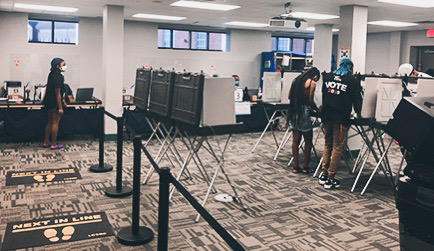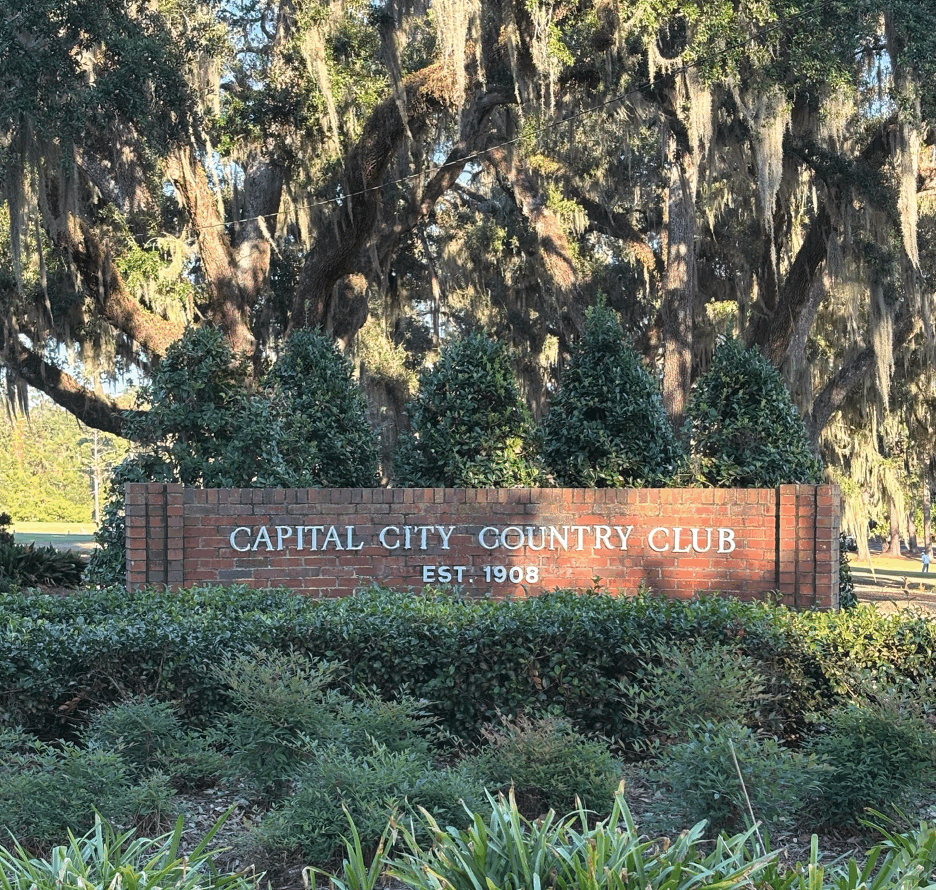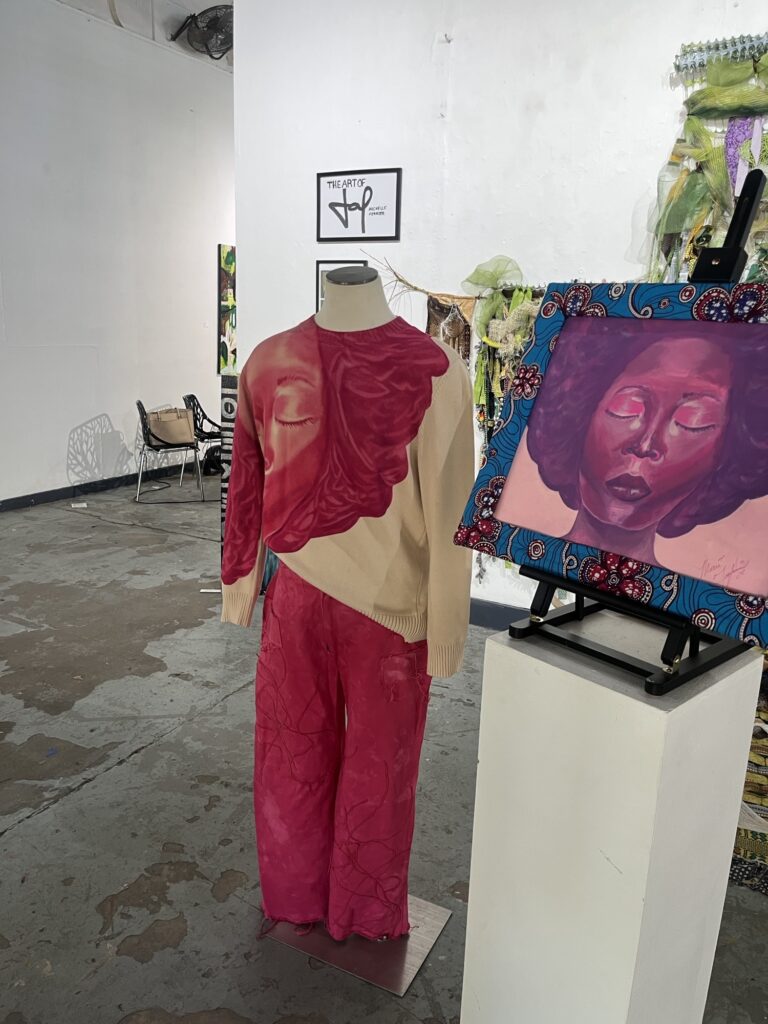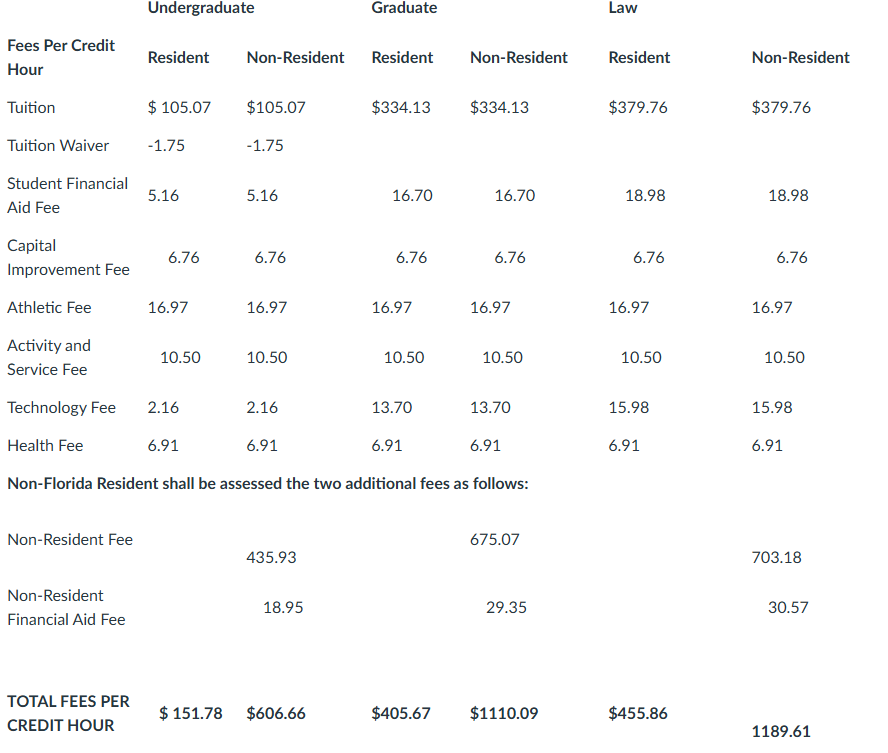TALLAHASSEE, Fla. — Precincts across the nation braced themselves for a surge in voter intimidation ahead of one of the most consequential elections of the decade. In the past weeks, the FBI investigated emails purportedly sent by the Proud Boys threatening Democratic voters if they cast a ballot opposing Trump. The recent threats and President Trump’s “stand back and stand by” remarks to the far-right wing supremacist group intensified Election Day anxiety for many voters. At Florida A&M University’s precinct, statewide volunteers showed up to ensure the polling site — which garners minority voters — weren’t susceptible to any intimidation tactics.
Octavia Thomas, who is a volunteer for a voter empowerment program throughout the state, believes anti-intimidation security was crucial “to ensure no voter intimidation, voter depression or suppression” occurred. The program is a partnership between the Florida For All coalition and the NAACP Legal Defense Fund where volunteers patrolled both low and high priority locations.
“We went out to the polling sites to make sure each poll deputy knows that there is someone here to make sure that the location is protected,” Thomas said. “Long lines are not normal. Not having enough polling stations is not normal. We are making sure that all of our locations are equipped with what they need and if they aren’t equipped with what they need, it is our duty and obligation to call the Supervisor of Elections to make that known to them.”
Winding lines plagued some cities in Florida as last day voters took to the polls in droves. Waiting time for voters across Tallahassee has remained relatively low, however, the city wasn’t exempt from witnessing its share of threats during this election season.
“Prior to election day, there were threats from some party supporters to come in and intimidate voters in Leon County. They were not residents in Leon County so they are also not obligated to be voting in Leon County. Sheriff Walter McNeal did stop that in advance, but there have been threats of people coming in from out of the city to threaten and intimidate other voters here,” Thomas said.
Florida is historically blighted by allegations of massive disenfranchisement and voter fraud allegations. As a battleground state that has a pivotal stake in which candidate heads to the White House, election protection was of utmost importance for local officials.
Leon County Supervisor of Elections Mark Earley said his main focus was combating voter deterrence with information campaigns to reestablish trust in mail-in ballots and other aspects of the voting process. Earley worked closely with law enforcement in the city to identify and dissolve any day of threats to residents in the greater Tallahassee area.
“We’ve been on the alert for any problems of a real-world scenario where there might be some organized effort to try and intimidate voters,” Earley said. “We’ve been in lots of talks and discussions with the sheriff’s office and local police chief. We’ve been in close communication with the state and federal agencies for any information that there might be something organized.”
Gloria Smith, a canvassing volunteer for the Biden Harris ticket, surveyed the university’s polling site to safeguard against any misinformation campaigns that could arise. Stationed a little over 150 feet away from the site to abide by Florida electioneering statutes, Smith felt it was still her duty to assure students to not be dissuaded from voting if they felt overwhelmed by canvassers.
“A lot of times people hand out flyers ahead of the site, but if you hand them out, you have to just hand them out. You shouldn’t encourage them too much to vote a certain way,” Smith said. “They should have their own idea of who they want to vote for by reading. When you push that stuff on people, that’s also intimidating. If they are voting, they definitely can read.”
Not only does intimidation at the polling sites affect Election Day turnout, but it also can root discomfort in civically engaging four years from now. That is precisely why grassroots organizers were sure to show up today because elections afterward are at risk.
Thomas said, “We don’t need people to feel like they voted in 2020 but they won’t vote in 2022 because it was an uncomfortable experience.”














